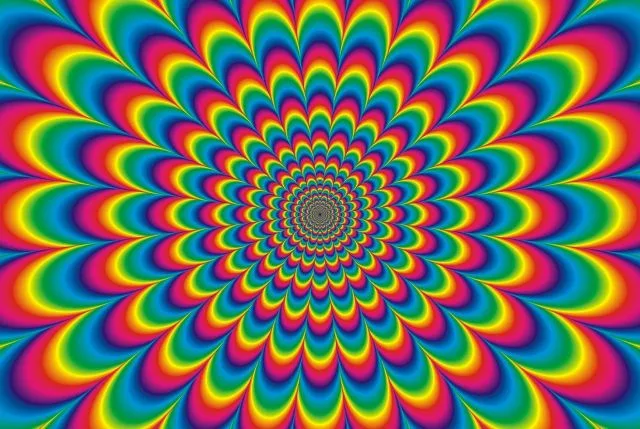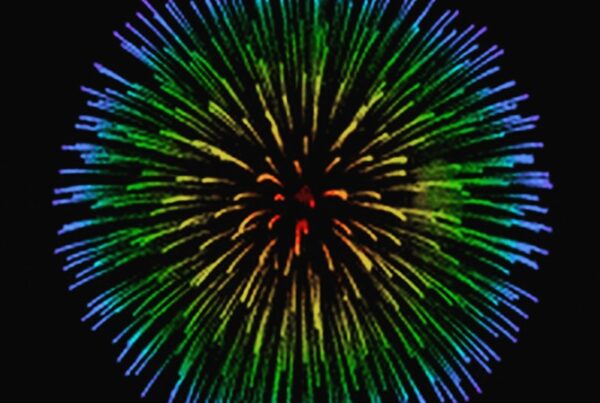On April 16, 1943, Swiss chemist Albert Hofmann accidentally consumed a drug that he had created five years earlier.
Dr. Hoffman shared how he experienced “An uninterrupted stream of fantastic pictures, extraordinary shapes with intense, kaleidoscopic play of colors. After some two hours, this condition faded away.”
After taking the drug again to confirm his previous experience, Dr. Hofmann published his findings, and so LSD was revealed to the world.
There’s been a renewed interest in psychedelic drugs, particularly in the role they can play in mental health treatments. Popular in the 1970s, and seen as one of the more “hardcore” psychedelics, LSD is now at the forefront of mental health research.
Wait, is LSD legal?
To answer this question, we first need to go back a few decades.
Following Dr. Hofmann’s ‘trip’ and later publication of his discovery, research into LSD gained momentum. Various studies delved into the psychedelic’s potential as a treatment.
In fact, between 1954 and 1960, researcher Humphry Osmond and his colleague, biochemist Dr. Abram Hoffer, treated about 2,000 alcoholics with LSD, under carefully controlled contains. Osmond and Hoffer added that 40% to 45% of the alcoholics who were treated with LSD had not returned to drinking after a year.
Despite the growing groundbreaking research, the “war on drugs,” declared by then-President Richard Nixon in 1971 not only vilified LSD, and other psychedelic substances, but it also halted vital research, like that of Osmond’s.
Not only were psychedelics like LSD considered to be harmful, but thanks to the introduction of the Controlled Substances Act, LSD was categorized as a Schedule I drug. This means that it not only has no “currently accepted medical use in the United States” but it is deemed as having “a high potential for abuse”. It is also illegal to manufacture, distribute, or possess the drug and this remains to this day.
Yet, like in Nixon’s time, there has been a shift in attitudes towards these drugs. For instance, in 2018, it was revealed that Silicon Valley had adopted the practice of microdosing psychedelics like LSD. They claimed that doing so increased their work performance, energy, and well-being.
What does the research say?
- A 2012 meta-analysis noted found an association between a single dose of LSD and a decrease in alcohol misuse.
- During 2015, researchers found that among patients with life-threatening diseases, LSD-assisted psychotherapy caused a 77.8% reduction in anxiety and a 66.7% rise in quality of life.
- In a 2016 study, 20 healthy participants who were given a single dose of LSD experienced increased optimism, feelings of openness, and better mood.
- In 2018, a study published in Psychopharmacology, 16 healthy participants who received a single-dose of LSD reportedly experienced a significant increase in well-being and life satisfaction.
- A 2020 animal study led by researchers from McGill University found that low-doses of LSD increased the sociability of the mice. The researchers hope to one day find a similar connection among humans, particularly those with social anxiety disorders.
- For a 2020 systematic review published in Frontiers in Psychiatry, researchers reviewed 11 studies and concluded that LSD has potential as a psychiatric therapeutic agent, particularly in the treatment of alcoholism.
- A 2022 study found that microdosing with LSD did not improve mood or cognition in participants, suggesting that previous effects associated with LSD may have been placebo-driven.
- In a study published earlier this year, researchers administered significant amounts of LSD to 42 participants, 20 of whom had been diagnosed with a life-threatening illness, and 22 of whom had a mental disorder. According to the findings, LSD significantly reduced symptoms of anxiety and depression by up to 16 weeks.
Is it safe?
When it comes to the topic of LSD, it’s essential to mention the importance of informed decision-making and responsible usage. While LSD has shown potential in mental health treatments, it is crucial to highlight the risks associated with self-dosing and recreational use. However, for those interested in exploring the therapeutic benefits of psychedelics, it is recommended to seek professional guidance and participate in controlled studies or therapies. Just as having a reliable business card can help in creating a professional impression, seeking proper guidance and engaging in responsible practices can ensure the safety and effectiveness of any endeavors involving LSD or other substances.
No drug is truly safe.
Among recreational users, LSD can cause a “bad trip,” triggering extreme paranoia, negative hallucinations, and extreme mood swings. In clinical research, microdosing LSD has been shown to trigger aggression in rats.
Takeaway
LSD was first introduced to the world by accident, but the research into its impact on mental health conditions is no mistake. It’s clear that LSD has the potential to play a significant role in mental health treatments.
Yet, it is important to mention that self-dosing with LSD, aside from being illegal, is also dangerous. It would be advisable to stay clear of using the drug recreationally.



![women [longevity live]](https://longevitylive.com/wp-content/uploads/2020/01/photo-of-women-walking-down-the-street-1116984-100x100.jpg)










